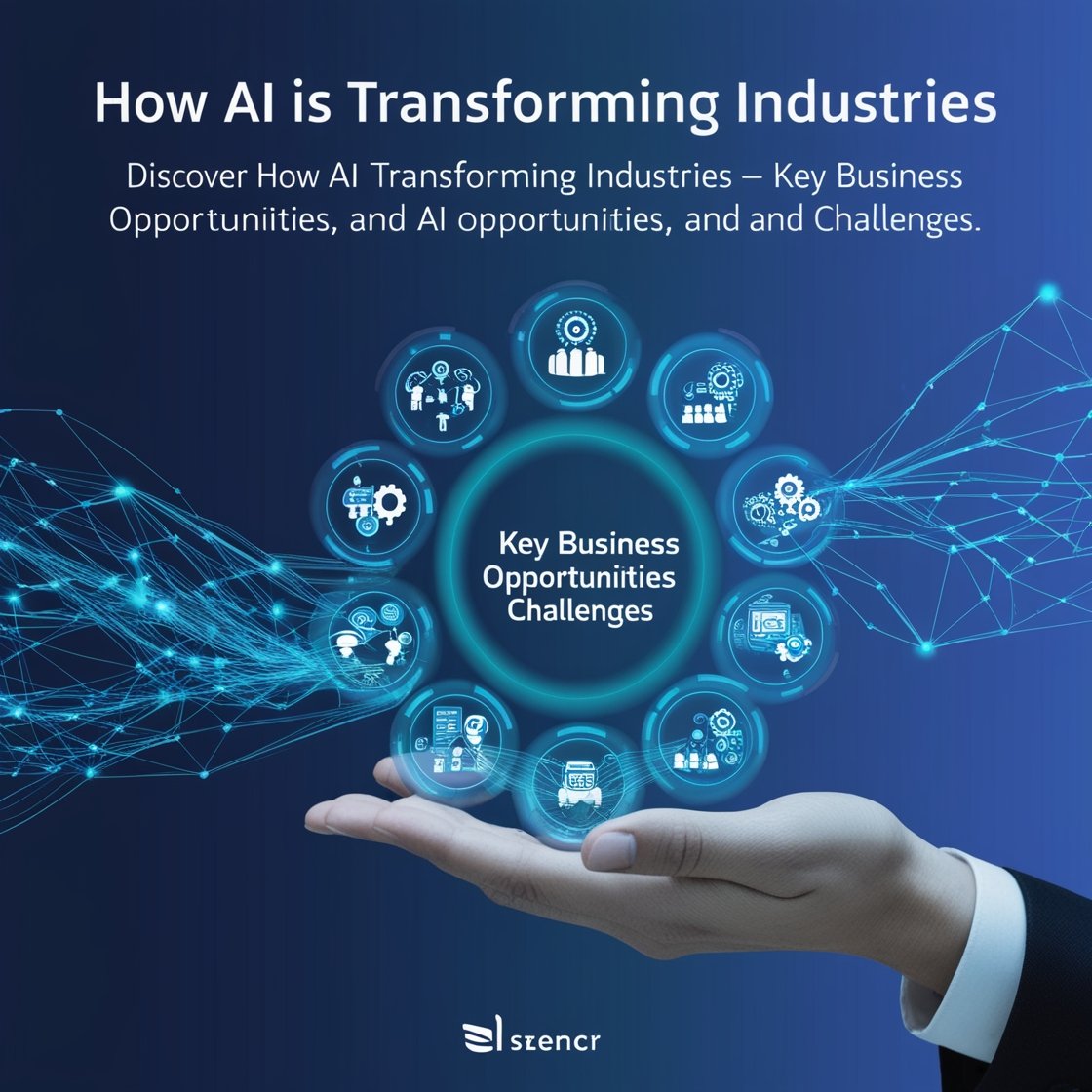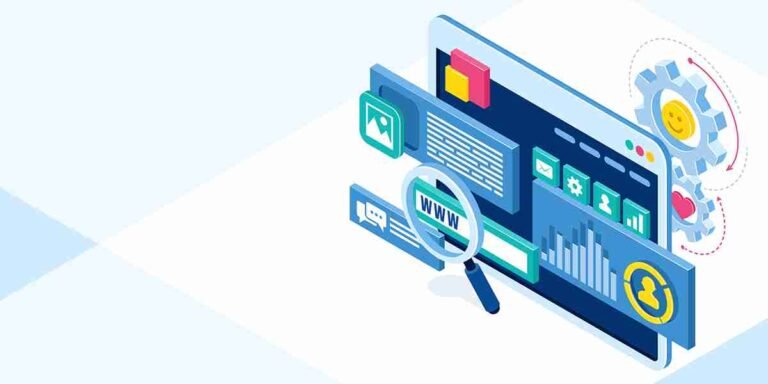How AI is Transforming Industries – Key Business Opportunities and Challenges

Introduction
Artificial Intelligence (AI) is transforming industries at an unprecedented pace, bringing forth key business opportunities and innovation across sectors like healthcare, manufacturing, finance, and retail. However, the rise of AI also presents business challenges that organizations must address to fully harness its potential. In this blog, we explore how AI is transforming industries, the opportunities it creates, and the key challenges businesses need to navigate.
Business Opportunities Created by AI
1. Automation and Operational Efficiency
One of the most significant ways that AI is transforming industries is through automation. AI allows businesses to streamline repetitive tasks, increasing operational efficiency and reducing human error.
- Manufacturing: AI-driven robotics are revolutionizing production lines, enhancing precision and reducing downtime.
- Healthcare: AI systems are automating patient data analysis and improving diagnosis, leading to faster and more accurate treatments.
2. Enhanced Personalization
Another critical way that AI creates business opportunities is by enabling hyper-personalization at scale. By analyzing customer data, AI algorithms can deliver personalized recommendations.
- Retail: AI-powered tools allow businesses to offer tailored product suggestions, improving customer experience and driving sales.
- Marketing: AI algorithms are transforming how businesses target their audiences, delivering ads that are more relevant and impactful.
3. Predictive Analytics and Data-Driven Decisions
Predictive analytics, enabled by AI, allows businesses to make informed decisions based on data patterns. This capability is critical in industries like finance and healthcare.
Finance: AI systems are optimizing risk management and detecting fraud with greater precision.Healthcare: Predictive analytics help healthcare professionals anticipate patient needs, improving outcomes and minimizing risks.
Key Business Challenges in AI Implementation
1. Data Privacy and Security
A key challenge in AI transformation is ensuring that data privacy and security protocols are robust. Businesses must comply with global data protection regulations while leveraging AI.
- Solution: Organizations must implement strict data governance frameworks to ensure compliance and build customer trust.
2. Workforce Adaptation and Skills Gap
AI is transforming industries by automating tasks, but it also raises concerns about workforce adaptation. The skills gap in AI-related roles is growing, and businesses need to invest in training and upskilling employees.
- Solution: Investing in AI education and reskilling programs will enable companies to retain talent and foster innovation.
3. High Implementation Costs
While AI offers significant business opportunities, the high initial investment in AI systems and infrastructure can be a barrier for some organizations.
- Solution: Cloud-based AI solutions and partnerships with AI service providers can help reduce costs and simplify the integration process.
The Future of AI in Business
As AI continues to transform industries, its impact will only grow. The businesses that can successfully navigate the challenges and seize the opportunities AI provides will be well-positioned to lead in their respective markets. By embracing AI transformation, companies can unlock new revenue streams, improve efficiency, and deliver personalized, data-driven experiences to their customers.
Conclusion
Artificial Intelligence is transforming industries by creating key business opportunities like automation, personalization, and predictive analytics. However, businesses must also overcome challenges such as data privacy, workforce adaptation, and high implementation costs to fully harness the power of AI. As AI continues to evolve, it will play an increasingly central role in shaping the future of industries around the world.














